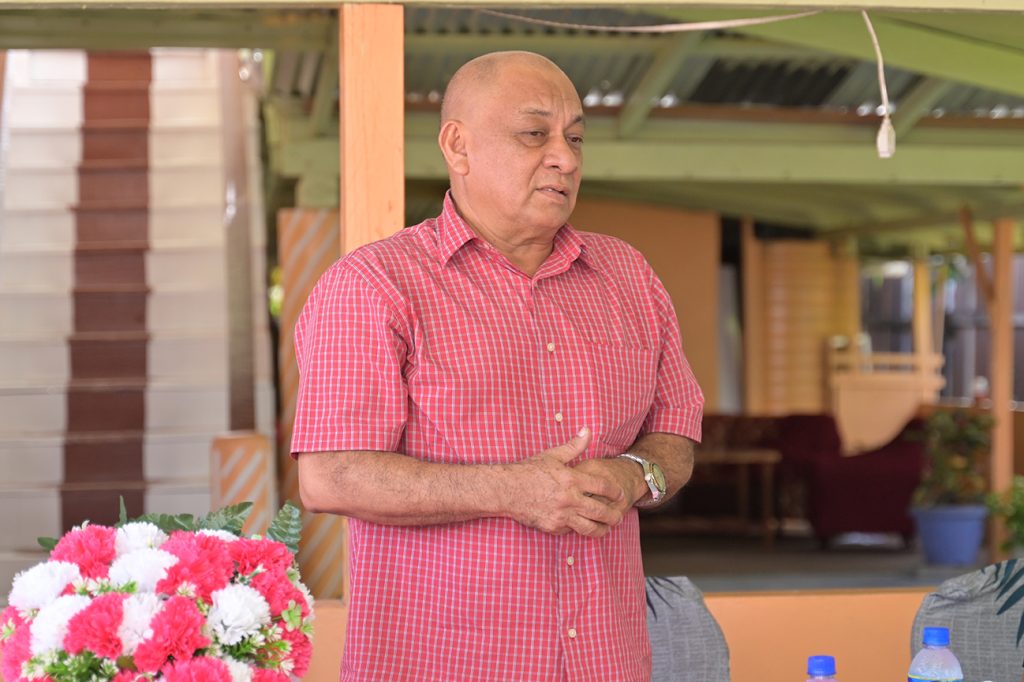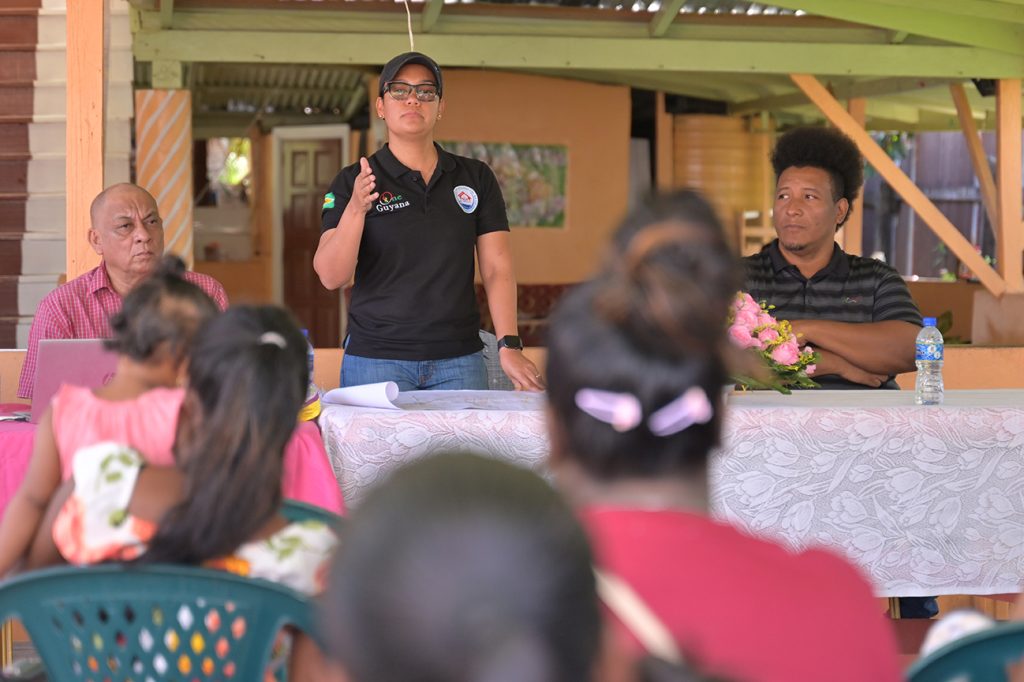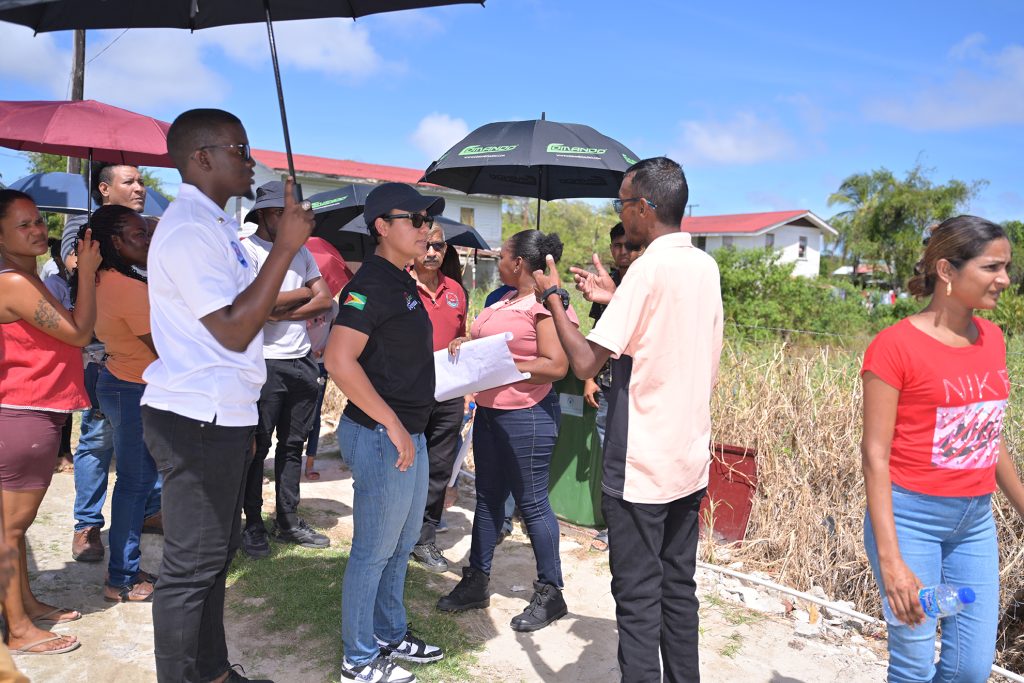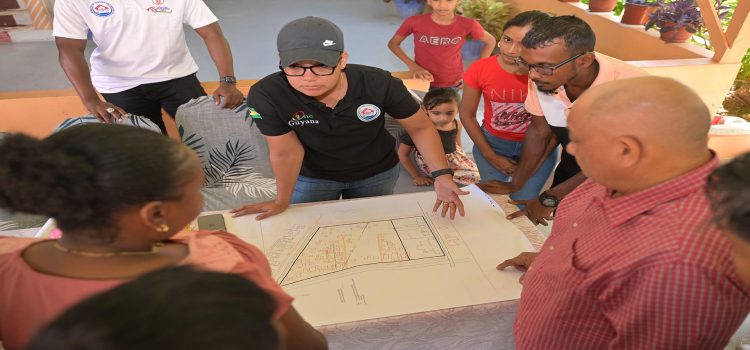November 16, 2024- About eighty families in Section E Non-Pariel, East Coast Demerara, will soon be able to process ownership documents, as plans are underway for the regularization of the area. Earlier today, Minister Susan Rodrigues, Minister within the Ministry, engaged with residents who have been living in the area for more than two decades, undocumented.
Mr. Gladwin Charles, the Director of the Community Development Department—which is leading the regularization effort—also attended the meeting which was chaired by Mr. Roger Evelyn, a community representative.

The issue was raised previously when the residents visited Minister Rodrigues’ office seeking assistance to initiate the process. According to the Minister, the problem has persisted for approximately 20 to 30 years, but this is the first time it was brought to her attention. She is committed to addressing it promptly.

The agency has completed an occupational survey and documented eighty structures in the area. This information has been handed over to the Planning Department for block design, which includes proper demarcation of each lot, access points, boundary lines, roads, reserves, and drainage. During the design process, some adjustments on the ground may be necessary.
“We need to contact GuySuCo, the rightful owners of this land, to acquire it. Once this process is complete, we can begin processing the Titles,” Minister Rodrigues stated. She also encouraged residents to submit a house lot application with the agency and to be cooperative to make the process easier for all stakeholders
Addressing the issue of squatting, the Minister noted that since assuming office, while there was a focus largely on the house lot allocation process much effort has been placed on squatters’ regularisation.
The President has issued a mandate to complete the regularization process under the Operation Clean-up initiative. This initiative targets unregulated areas or informal settlements across the country and provides them with ownership documents. The Minister highlighted that the regularization of squatters is a crucial aspect of the Government’s housing strategy.

“As of 2015, we identified over 200 squatter settlements and have regularized 175 of them. From 2020 to now, we have regularized over 1,000 lots and are aggressively executing this initiative.”
The Minister explained that part of the regularization process involves identifying zero-tolerance areas, which may require relocation. However, for those who can be regularized, the government facilitates the processing of ownership documents.
Meanwhile, residents were also allowed to raise several other issues affecting them before the Minister conducted a walkabout with them in the community.
Photos: Sydel Thomas CHPA PR Dept.
